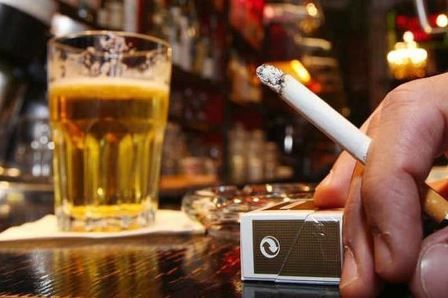
Budget: Liquor, cigarettes to cost more, no increase in fuel levy
By: IOL
Finance 2024 Budget made provision to raise R15 billion in taxes to alleviate fiscal pressure and support debt stabilisation.
The revenue was mostly raised through personal income tax by not adjusting the tax brackets, rebates and medical tax credit for inflation.
“Over the medium term, revenue projections are R45.6 billion higher than the 20223 medium term budget policy statement estimates which increased personal income tax and additional medium term revenue proposals,” Finance Minister Enoch Godongwana said.
Above inflation increases of between 6.7% and 7.2% for 2024-25 were proposed for alcohol products excise duties.
The increases would be as follows:
∎ A can of beer will increase by 14 cents.
∎ A can of cider and alcoholic fruit beverage goes up by 14 cents.
∎ A bottle of wine will cost an extra 28 cents.
∎ A bottle of sparkling wine will cost an extra 89 cents.
∎ A bottle of spirits, including whisky, gin and vodka, will increase by R5.53.
Godongwana said tobacco excise duties would increase by 4.7% for cigarettes and cigarette tobacco, and by 8.2% for pipe tobacco and cigars.
“This translates to R9.51 increase for cigars, a 97 cents increase for a pack of cigarettes and an extra 57 cents for pipe tobaccos.”
The minister announced that the excise duty on electronic nicotine and non-nicotine delivery systems had increased by R3.04 per millilitre.
He said carbon tax increased from R159 to R190 a ton of carbon dioxide equivalent as of January 2024.
“A discussion paper outlining proposals for the second phase of the carbon tax will be published for comment later in the year.”
He also said there would be no increase to the general fuel levy.
“This will be in tax relief of around R4 billion. This is money in the pockets of consumers.”
Godongwana said multinational corporations with annual revenue exceeding 750 million euros would be subjected to an effective tax rate of at least 15% regardless of where their profits are generated.
“The proposed reform is expected to yield an additional R8 billion in corporate tax revenue in 2026-27.”
He encouraged interested parties to provide comments on the draft Global Minimum Tax Bill that was published on Wednesday.
“Our long strategy tax policy strategy remains focused on broadening the tax base while improving tax compliance and administrative efficiency.”
Cape Times
News Category
- International retailers
- On the move
- Awards and achievements
- Legislation
- Wine and liquor
- Africa
- Going green
- Supplier news
- Research tools
- Retailer trading results
- Supply chain
- Innovation and technology
- Economic factors
- Crime and security
- Store Openings
- Marketing and Promotions
- Social Responsibility
- Brand Press Office
Related Articles

Shoprite increases executive pay as consumers t...

Unions slam SA retailers for ‘profiteering’ as ...

Major Petrol Price Changes on the Horizon

Retailers not cutting food prices fast enough -...


